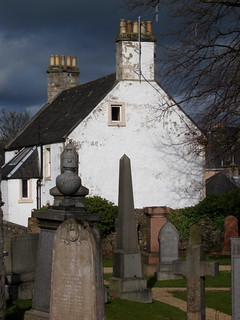It’s the first Friday of National Poetry Month, which means a doubly special poetry challenge, participated in by Kelly, Sara, Liz calling in from the road; Laura, and Tricia (Andi is sitting this one out) as part of the Poetry Seven’s Year in Poetry challenge. This month, Sara chose a poem by Rilke for us to respond to directly –
You, darkness, of whom I am born—
I love you more than the flame
that limits the world
to the circle it illumines
and excludes all the rest.But the dark embraces everything
shapes and shadows, creatures and me,
people, nations—just as they are.It lets me imagine
a great presence stirring beside meI believe in the night.
—Rainer Maria Rilke, The Book of Hours, translated by Anita Barrows and Joanna Macy
We all read this poem a few times, and then a few more, and then decided what to do with it. I tried to write a line-to-line response first, which didn’t work at all. Then I tried to write a kind of …Big Picture Thought about how the poem made me feel. Also didn’t work. As I was trying to work through my daily poem challenges for National Poetry Month, I begin to get a little worried… Rilke, with his usual straightforwardness, was not striking any sparks with me.
And then, I started thinking about sparks… little spangles of light, illumination. And the opposite of said. Sparks don’t actually let us do anything but see that there’s contrast. They don’t help us see anything but the light itself, and what is it, really?
This is a dude who likes the dark. I respect that about him. Few people actually do. Oh, we think we love the dark, the stars. We quote “When I Heard The Learn’d Astronomer,” and gaze up wistfully. But, where most of us live is so much light pollution we don’t actually have dark. I have become acquainted with the night, because I briefly lived way out in the country, in Glasgow. Our neighbors were sheep. It was flippin’ dark out on those country lanes. It was …kind of amazing. And, I knew I was walking right next to spiders. I had to decide how much I was going to let that bother me.
In the end, I decided that I agreed with ‘ol Rainer, because I like the dark, but I also want to like the dark. Being who I am, the literal girlchild who has thought a great deal about the word “black” as reflected in theology and hymnody, darkness is going to mean a little something different to me — and I could see that reflected in the seven’s poetry, as we wrote on our shared Google document. I may be the only one who likes the dark, but I won’t hold that against anyone. I have walked a different (spider-adjacent) road, and I tend to have to reject the experience that “most” people have with darkness – because I am not most people.
Took me long enough to figure that out.
“the absence of color”
from darkness thou art formed & dust thou art
first secreted within thy mother’s womb
deep shadows, holding fast creation’s start
to secret hopes in dreamer’s sleep entombed(blackness is sin, a moody study’s brown
and white holds light, a purity renown
a Presence stirs, beneath the surface bright
foul fiend, forfend, or wisdom’s erudite?)before the light can drown thy timid sheen
enlightening with fact that still deceives
hold to thine task: believe what is not seen
and be ye blesséd by the unperceived.
Poetry Friday is hosted today by Irene Lantham at her blog, LIVE YOUR POEM. Check it out, for more!
